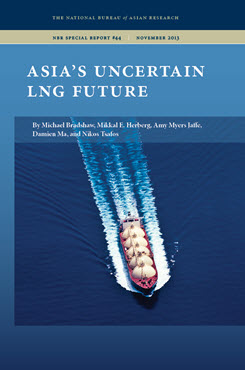How the Shale Revolution Will Transform U.S. Policy
This essay examines how the rapid growth of oil and natural gas production from unconventional shale resources in North America will transform global energy markets and assesses the implications of this transformation for the U.S. position as a global power.
EXECUTIVE SUMMARY
This essay examines how the rapid growth of oil and natural gas production from unconventional shale resources in North America will transform global energy markets and assesses the implications of this transformation for the U.S. position as a global power.
Main Argument
The rapid growth of oil and natural gas production from unconventional shale resources in North America will transform global energy markets and enhance U.S. strategic and economic power. The U.S. will become a stable, competitive choice for supplies of refined products, natural gas, and potentially oil exports to other major economies, thereby reducing the geopolitical influence of oil exporters such as Russia and member states of Organization of the Petroleum Exporting Countries (OPEC). Rather than driving the U.S. into a more isolationist posture, energy abundance could lead Washington toward an even more assertive foreign policy. By contrast, China’s dependence on oil and gas from the Middle East will grow exponentially in the coming years, just at the time when U.S. oil imports from the region are declining rapidly. Asian economies such as China and Japan, rather than the U.S., will thus be most exposed to oil-supply disruptions. This development will change the balance in U.S.-China bilateral relations regarding the protection of the free flow of oil from the Middle East and possibly require China to adjust its policies.
Policy Implications
- In light of these dramatic shifts in world energy markets, the U.S. should consider the following policy responses that address the market and geopolitical opportunities presented by the shale revolution: Embrace exports of liquefied natural gas and someday possibly oil as a means to guarantee open markets for energy
- Work to elevate communication between the U.S. and Chinese militaries to include strategic communications on conflict resolution in the Middle East
- Re-evaluate the goals and operations of the U.S. Strategic Petroleum Reserve in light of falling crude-oil import requirements


